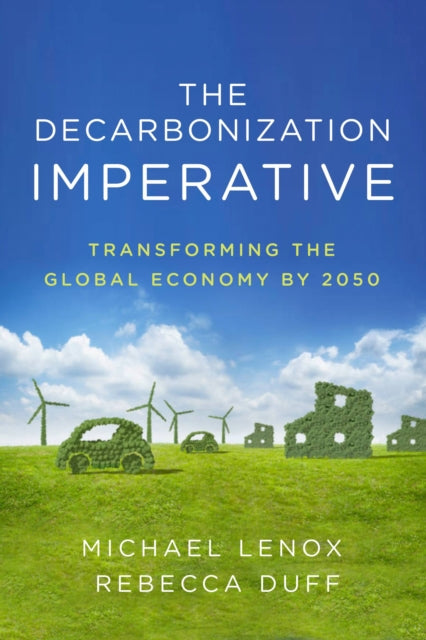
Decarbonization Imperative: Transforming the Global Economy by 2050
 Limited Time Sale
Limited Time Sale$15.94 cheaper than the new price!!
Free cash-on-delivery fees for purchases over $99
Product details
| Management number | 201820284 | Release Date | 2025/10/08 | List Price | $15.95 | Model Number | 201820284 | ||
|---|---|---|---|---|---|---|---|---|---|
| Category | |||||||||
Time is of the essence in addressing climate change, which requires a complete decarbonization of the global economy by 2050. This includes transitioning to 100% battery-powered or non-carbon-emitting vehicles, renewable energy sources, electrification of industries, and sustainable farming. Disruptive innovation and a shift in industry dynamics are necessary to achieve this transformation, with markets playing a critical role. Policy interventions and strategies are needed to move towards clean tech and decarbonization by 2050.
Format: Hardback
Length: 288 pages
Publication date: 05 October 2021
Publisher: Stanford University Press
Time is of the essence. Climate change looms as a malignant force that will reshape our economy and society for generations to come. If we are going to avoid the worst effects of climate change, we are going to need to effectively decarbonize the global economy by 2050. This doesn't mean a modest, or even a drastic, improvement in fuel efficiency standards for automobiles. It means 100 percent of the cars on the road being battery-powered or powered by some other non-carbon-emitting powertrain. It means 100 percent of our global electricity needs being met by renewables and other non-carbon-emitting sources such as nuclear power. It means electrifying the global industrial sector and replacing carbon-intensive chemical processes with green alternatives, eliminating scope-one emissions—emissions in production—across all industries, particularly steel, cement, petrochemicals, which are the backbone of the global economy. It means sustainable farming while still feeding a growing global population.
Responding to the existential threat of climate change, Michael Lenox and Rebecca Duff propose a radical reconfiguration of the industries contributing the most, and most harmfully, to this planetary crisis. Disruptive innovation and a particular calibration of industry dynamics will be key to this change. The authors analyze precisely what this might look like for specific sectors of the world economy—ranging from agriculture to industrials and building, energy, and transportation—and examine the possible challenges and obstacles to introducing a paradigm shift in each one. With regards to existent business practices and products, how much and what kind of transformation can be achieved? The authors assert that markets are critical to achieving the needed change, and that the transition to a low-carbon economy will require significant public and private investment.
The authors argue that the transition to a low-carbon economy will require a shift in consumer behavior, as well as a change in government policies and regulations. They suggest that governments should prioritize the development of renewable energy sources, invest in infrastructure for electric vehicles, and implement carbon pricing mechanisms to incentivize businesses to reduce their carbon footprint. Additionally, the authors suggest that businesses should focus on developing new products and technologies that are more sustainable and environmentally friendly, and that consumers should be more conscious of the impact of their purchases on the environment.
The authors also acknowledge that the transition to a low-carbon economy will not be easy, and that there will be challenges and obstacles along the way. They suggest that governments should work to address these challenges, such as by providing support for businesses and workers who are affected by the transition, and by investing in research and development to help develop new technologies and solutions. Additionally, the authors suggest that individuals should take action to reduce their carbon footprint, such as by reducing their energy consumption, using public transportation, and eating a plant-based diet.
In conclusion, the authors of "The Carbon Trap" argue that the transition to a low-carbon economy is necessary to address the existential threat of climate change. They propose a radical reconfiguration of the industries contributing the most to this crisis, and suggest that disruptive innovation and a particular calibration of industry dynamics will be key to this change. The authors analyze precisely what this might look like for specific sectors of the world economy, and examine the possible challenges and obstacles to introducing a paradigm shift in each one. They assert that markets are critical to achieving the needed change, and that the transition to a low-carbon economy will require significant public and private investment. Additionally, the authors suggest that individuals should take action to reduce their carbon footprint, and that governments should work to address the challenges and obstacles along the way way.
Dimension: 229 x 152 (mm)
ISBN-13: 9781503614789
Correction of product information
If you notice any omissions or errors in the product information on this page, please use the correction request form below.
Correction Request Form
















